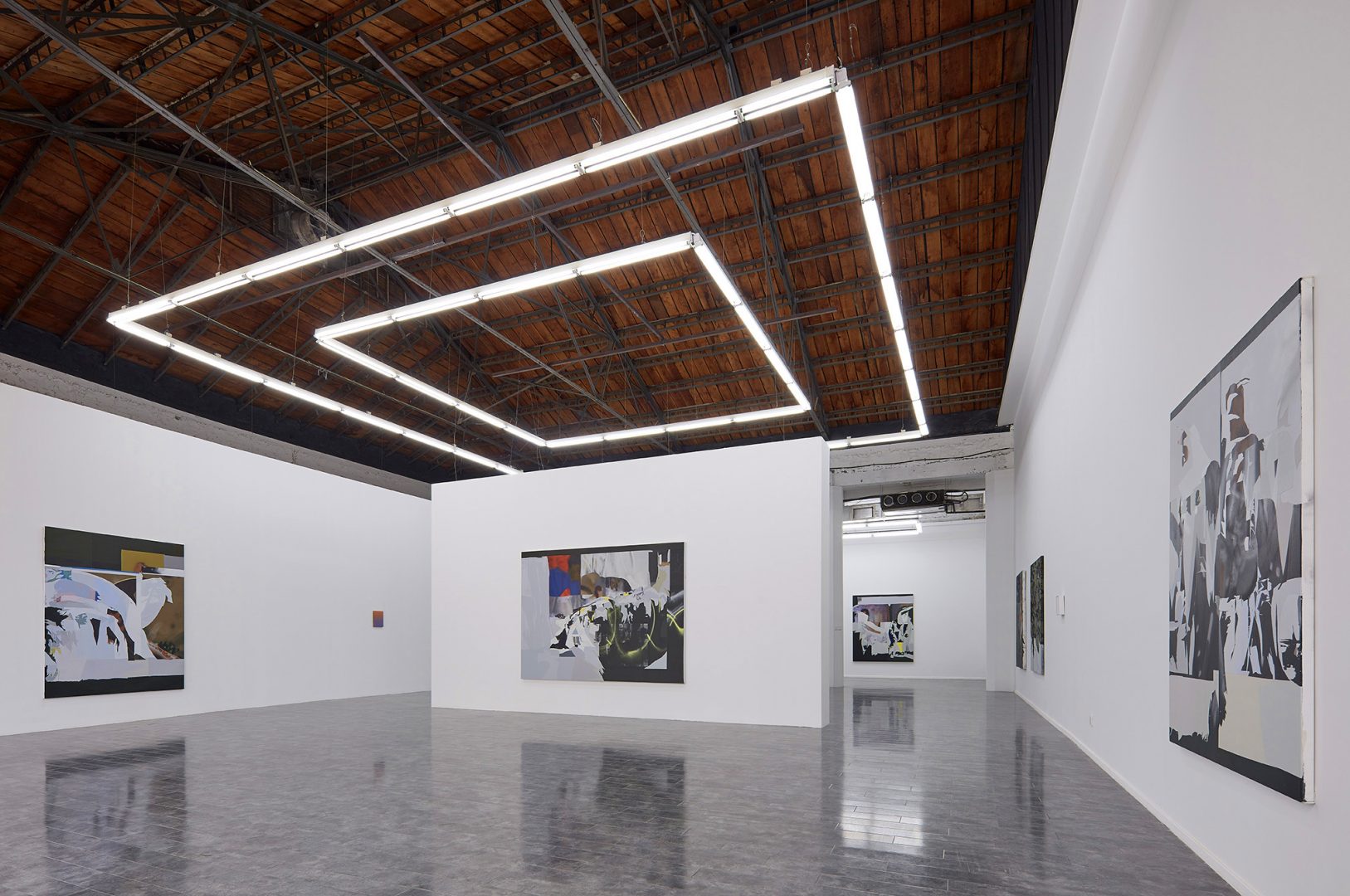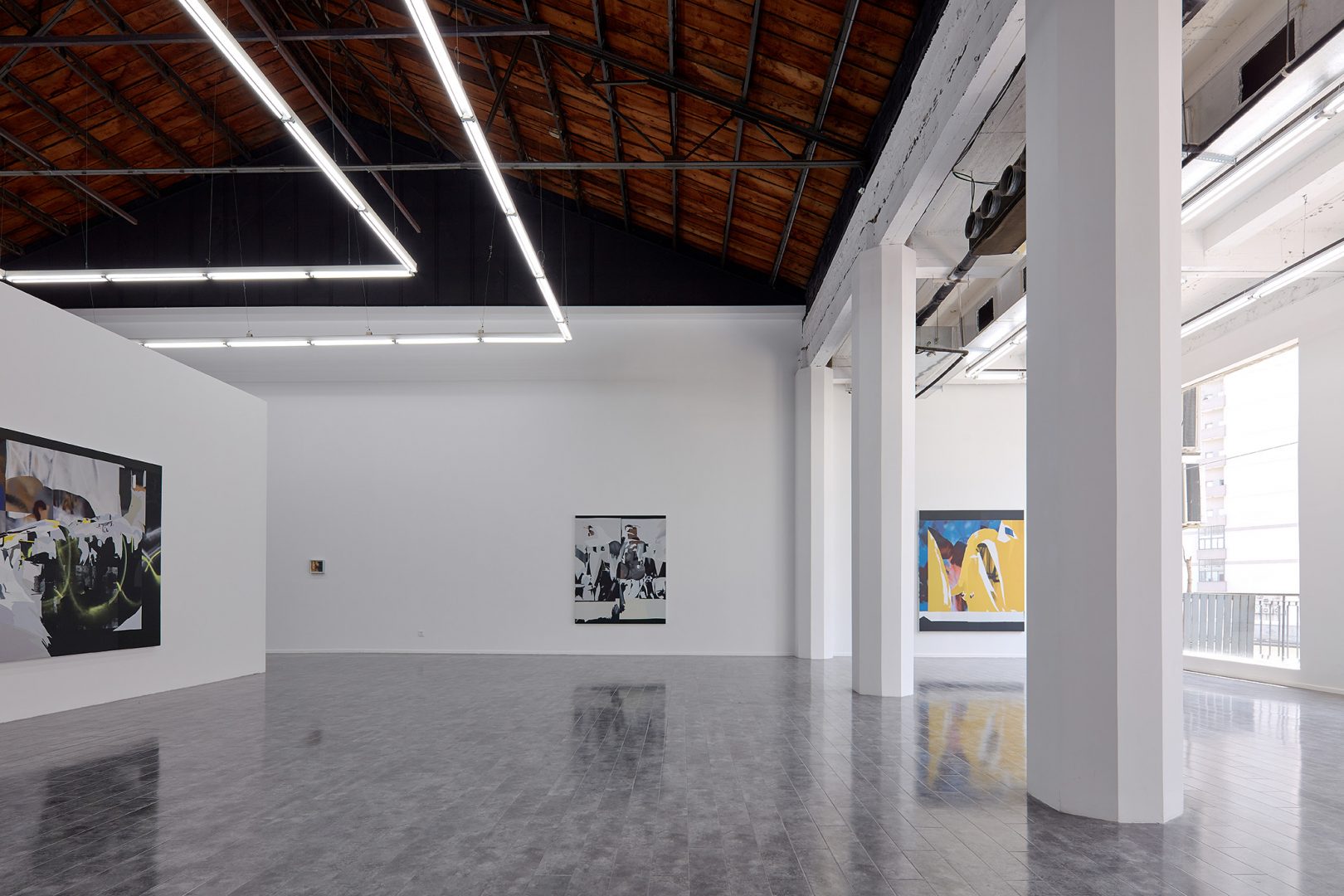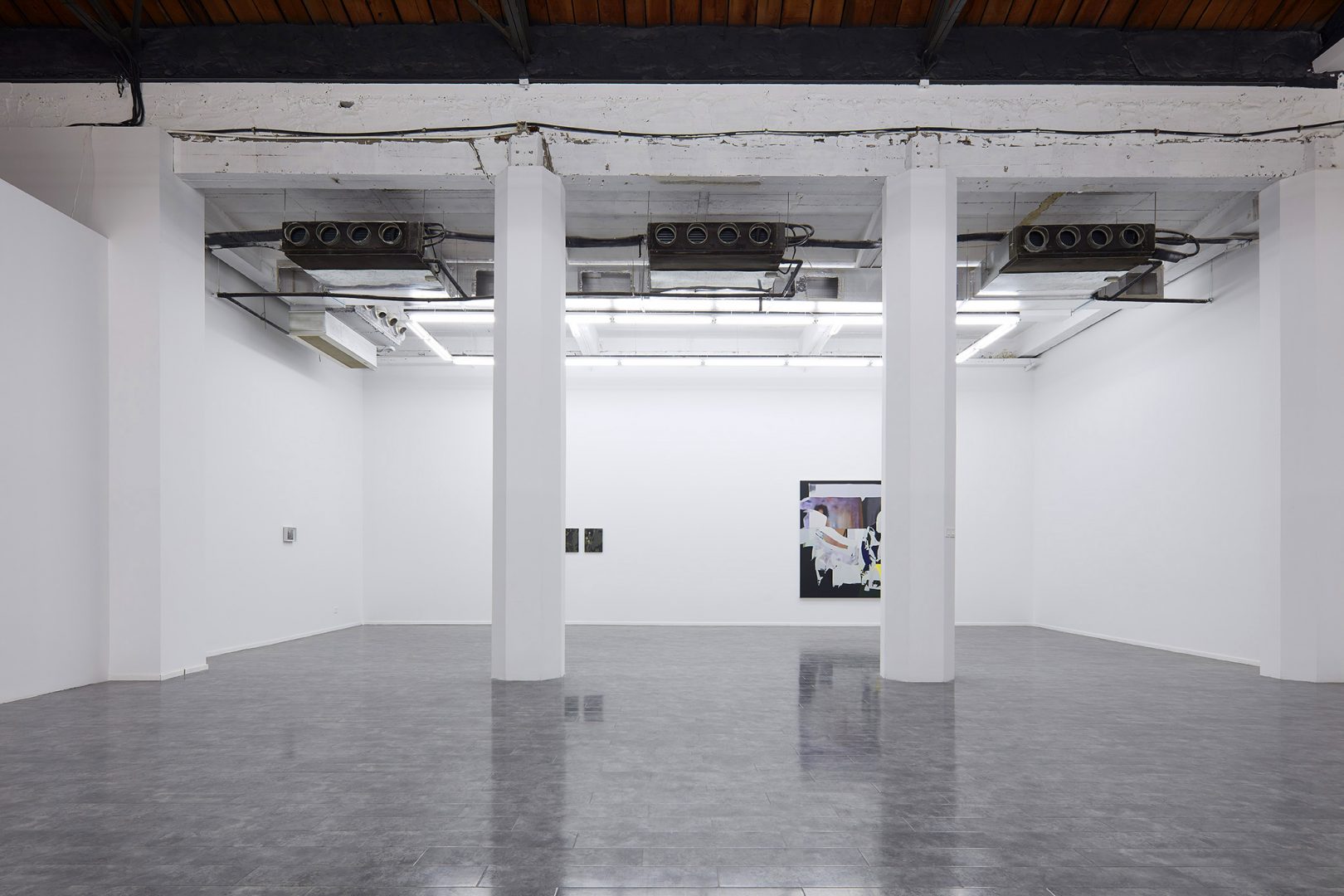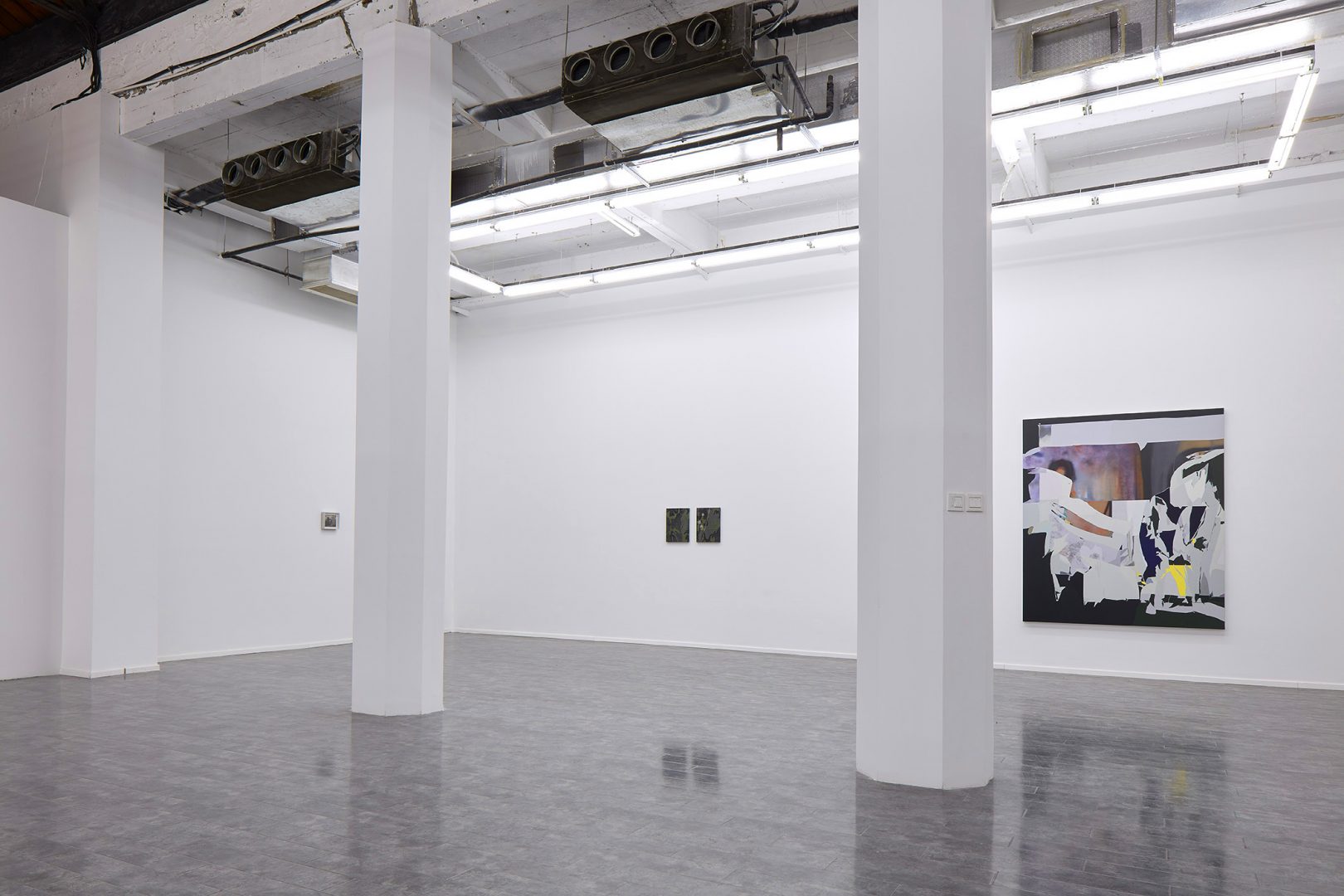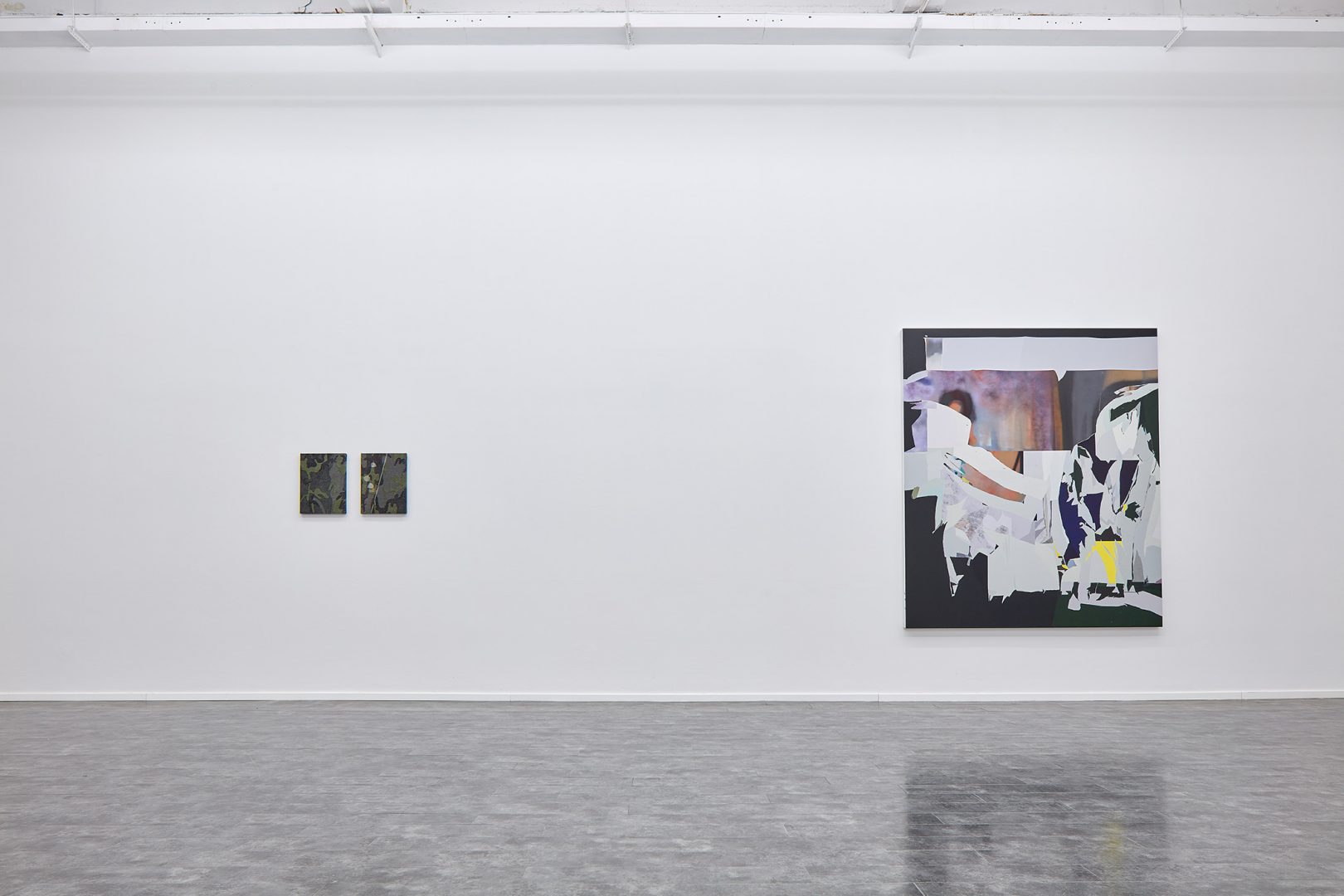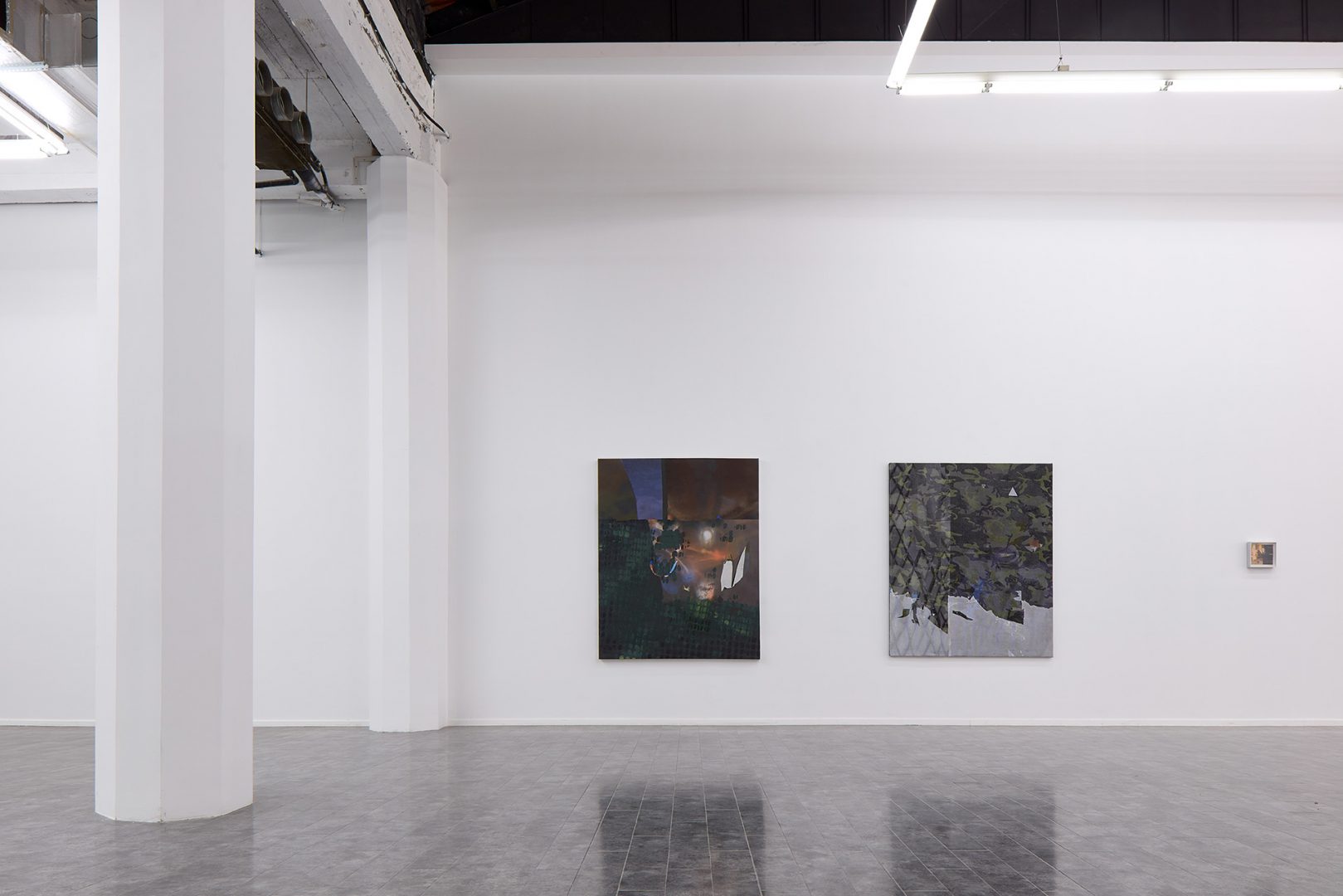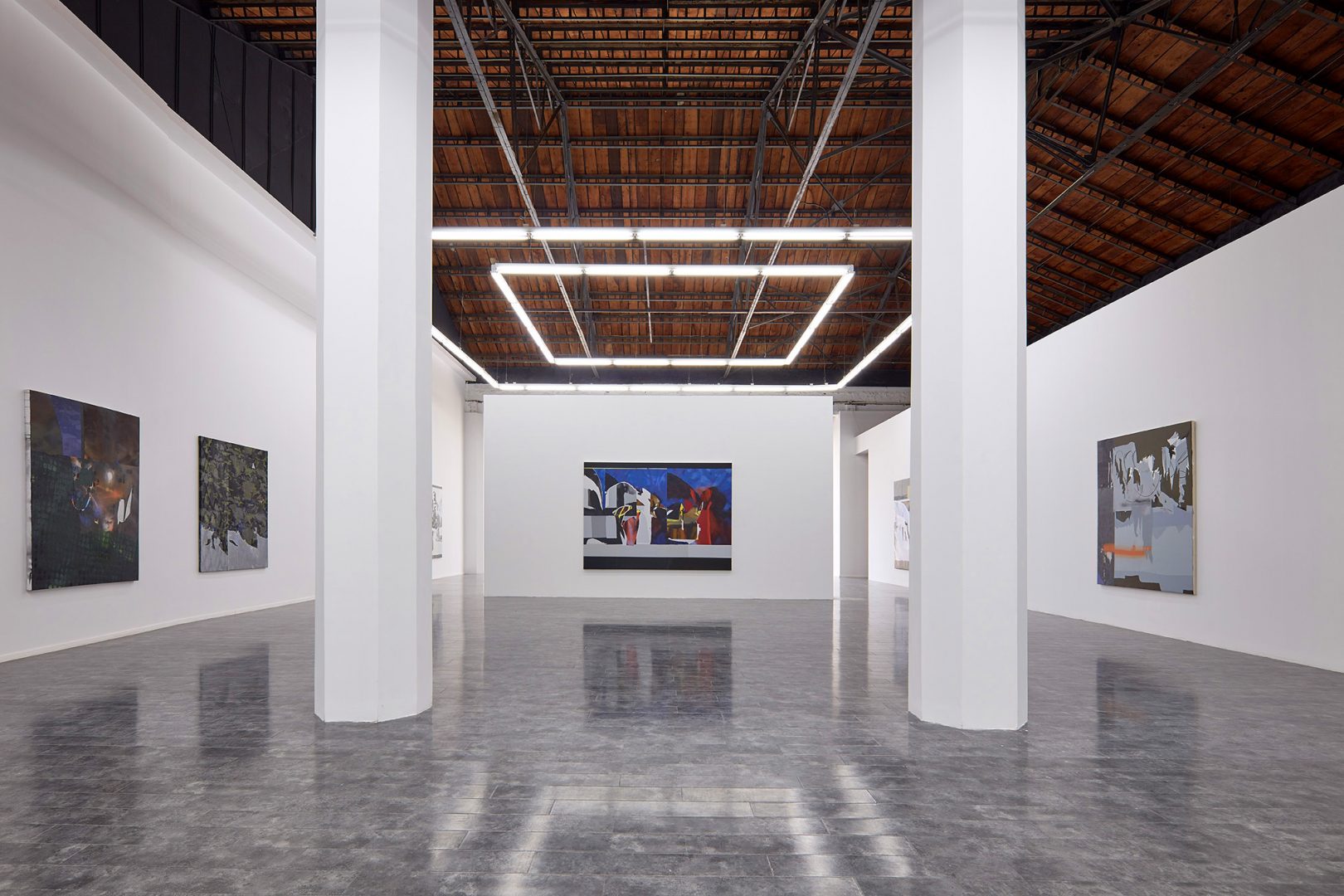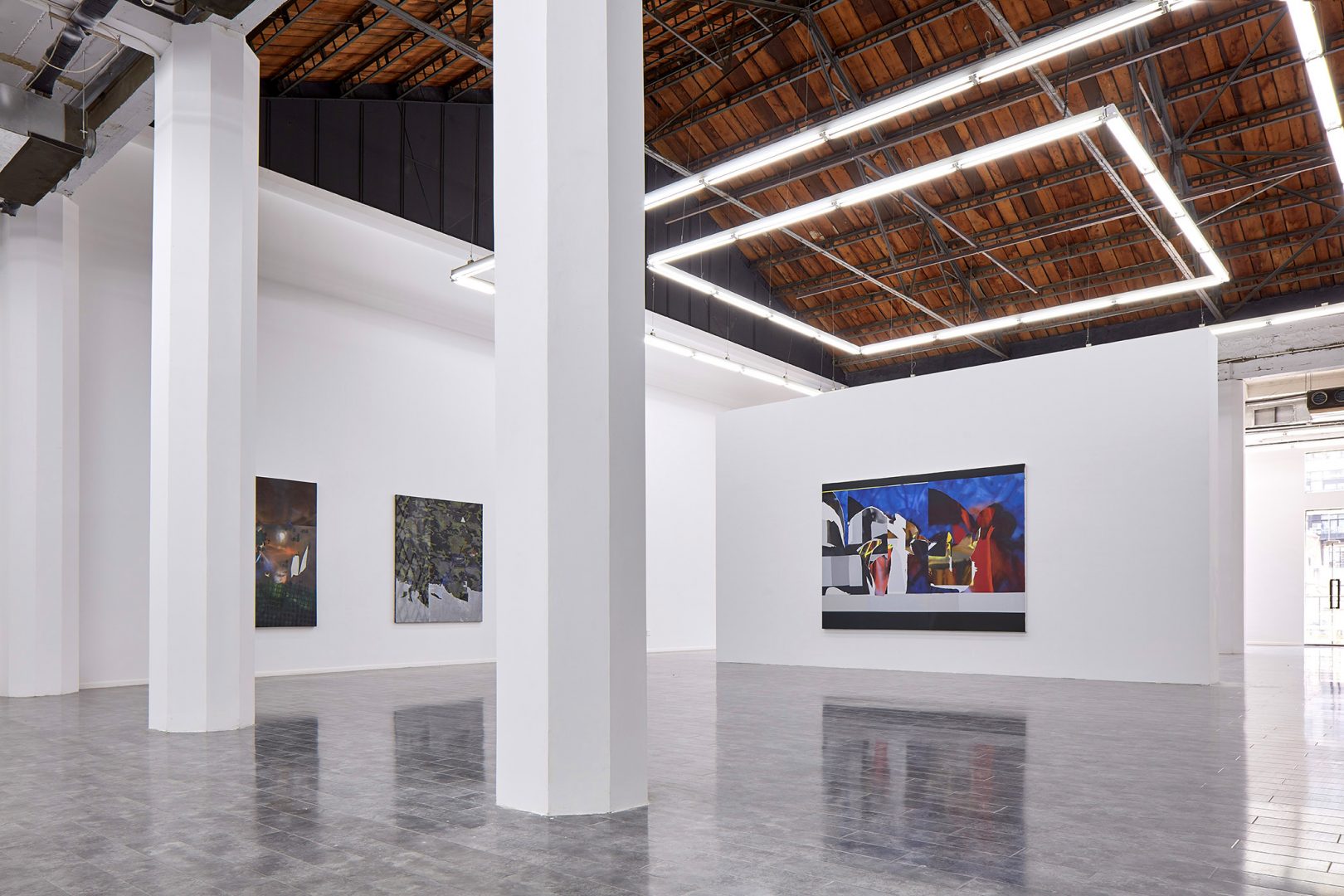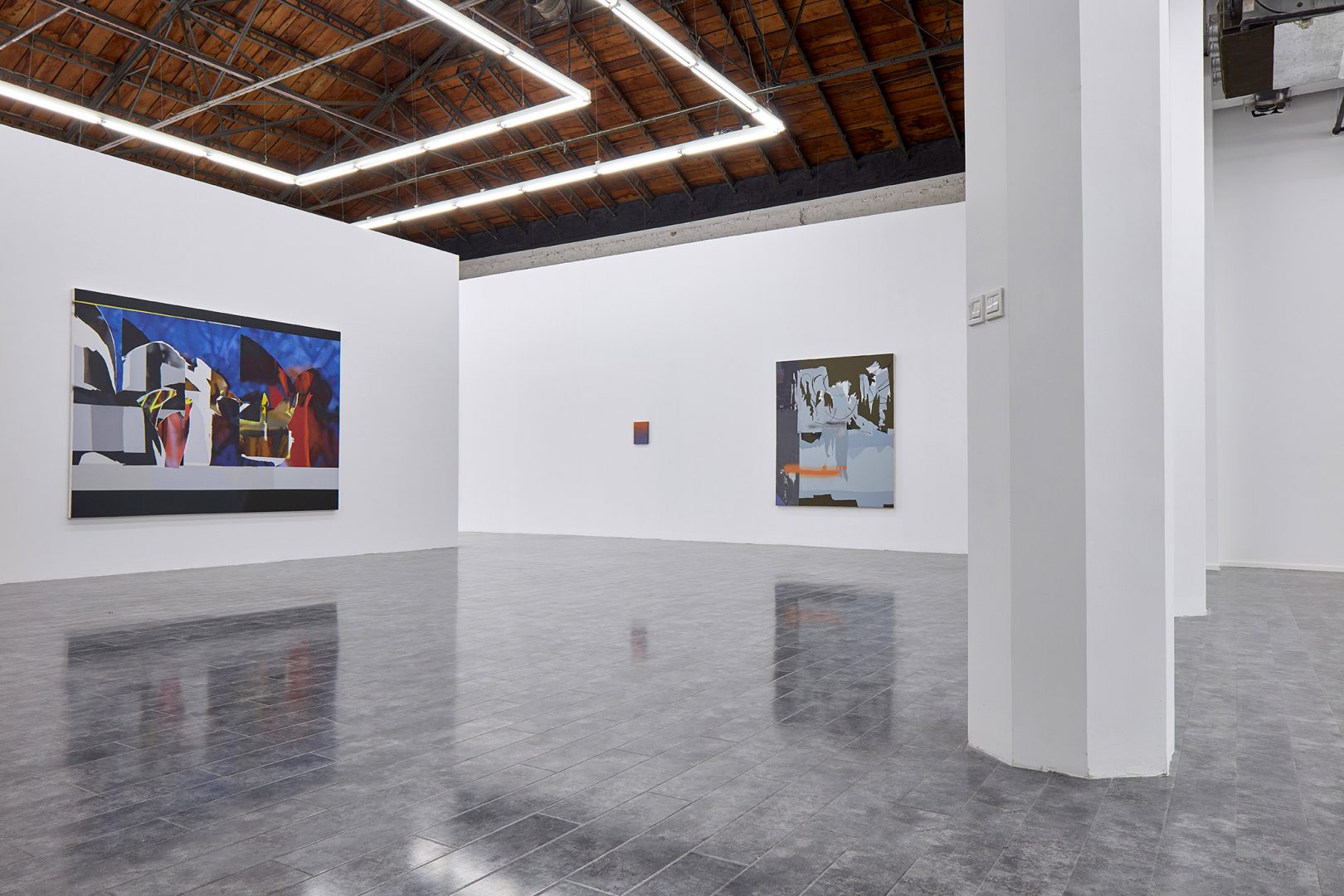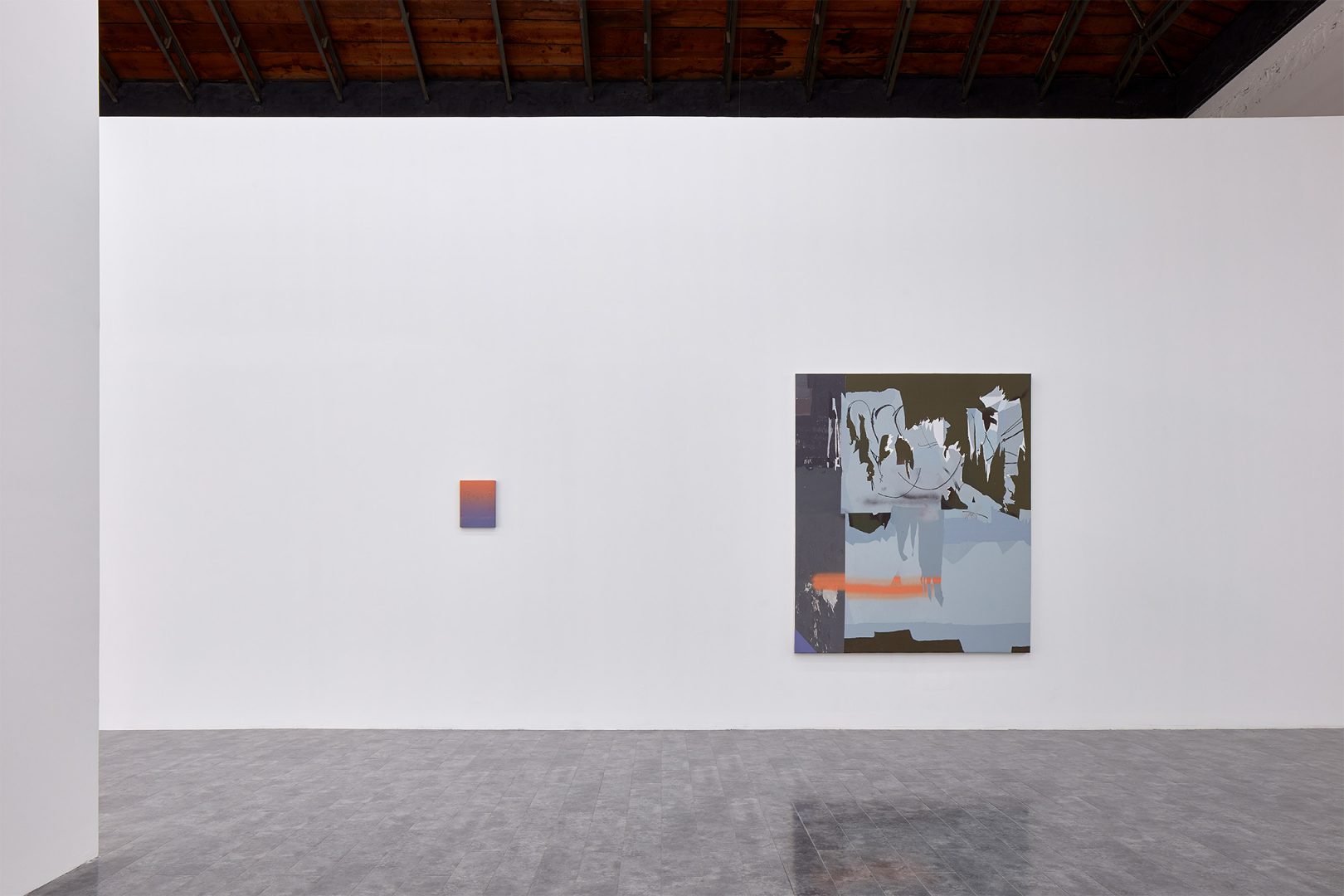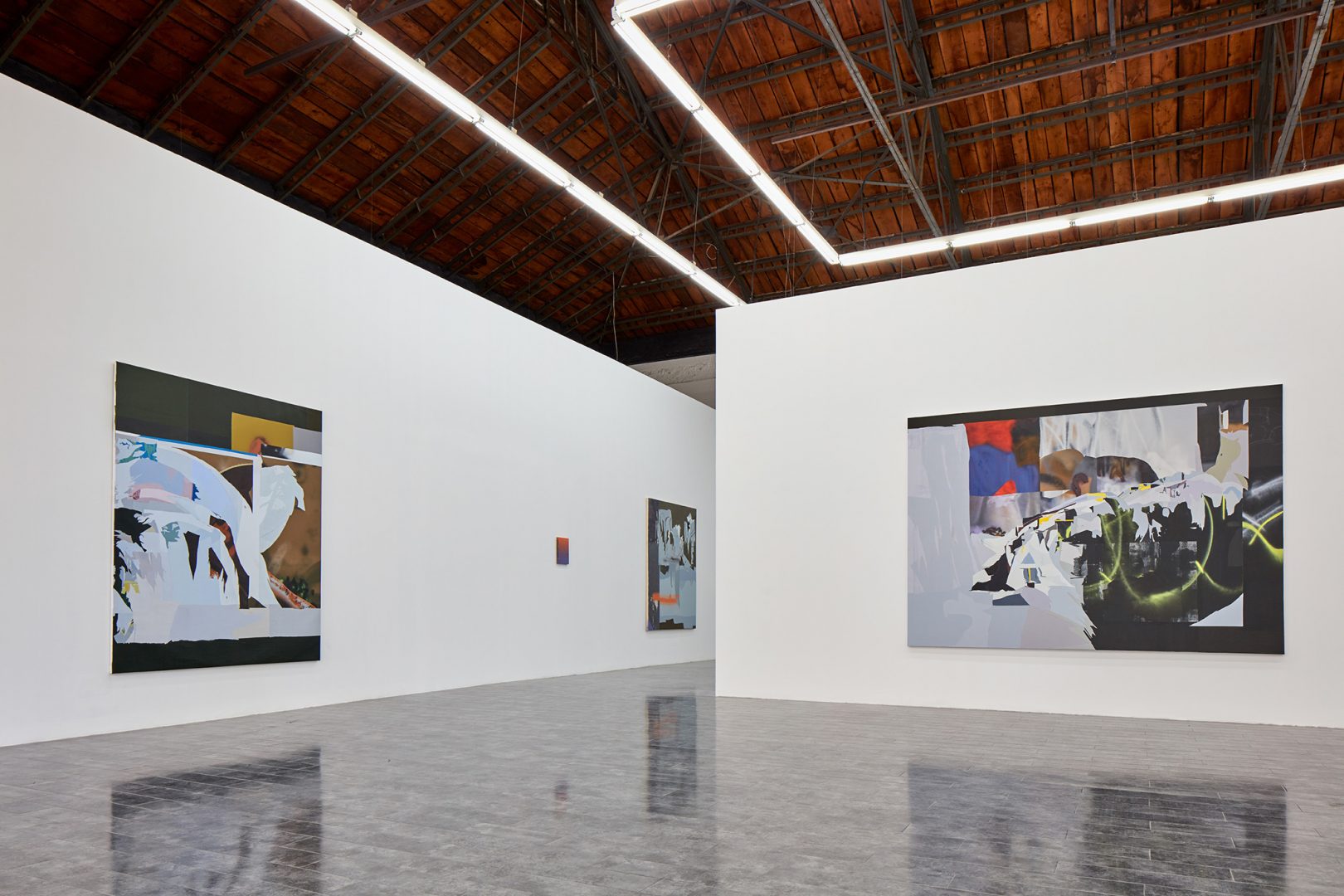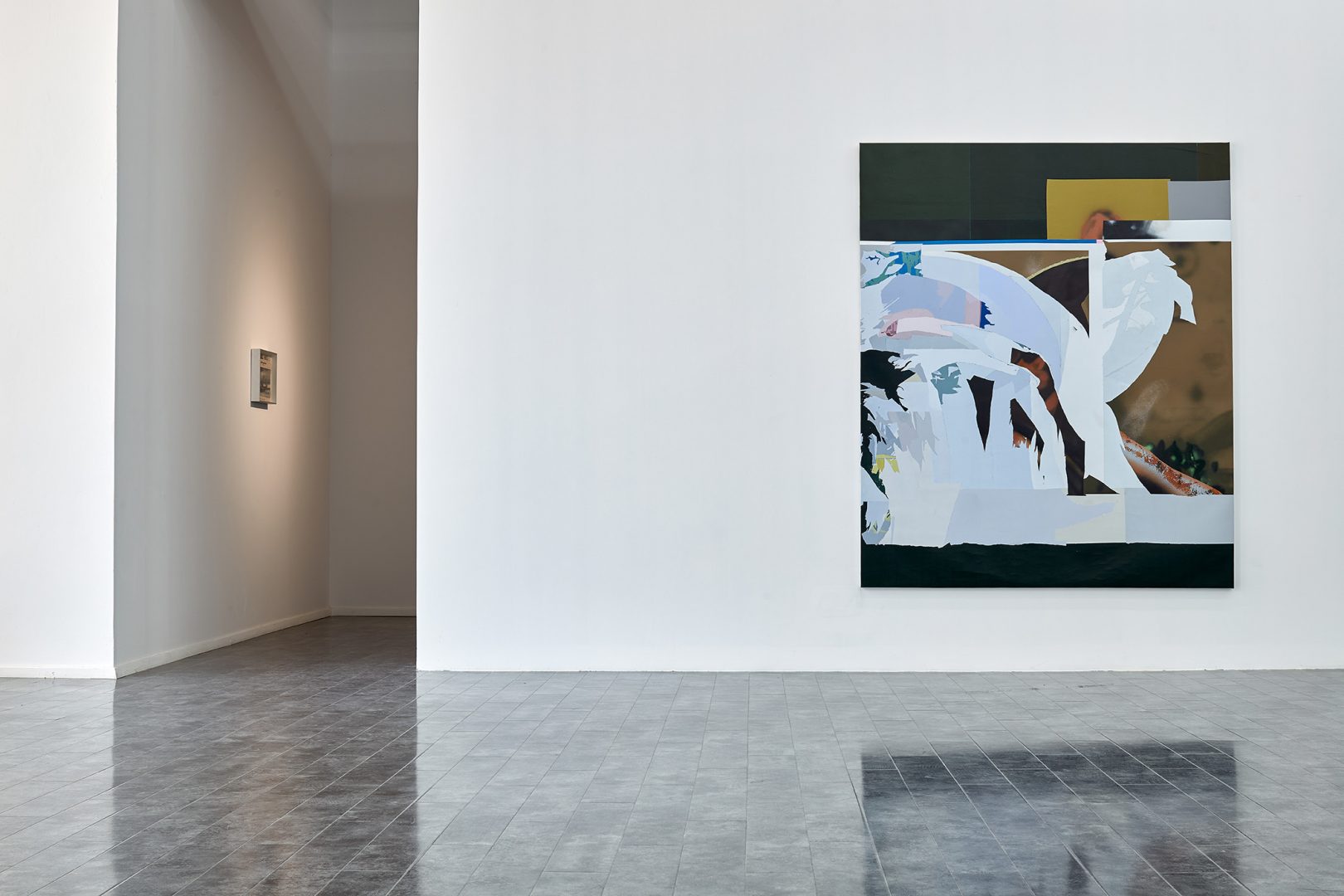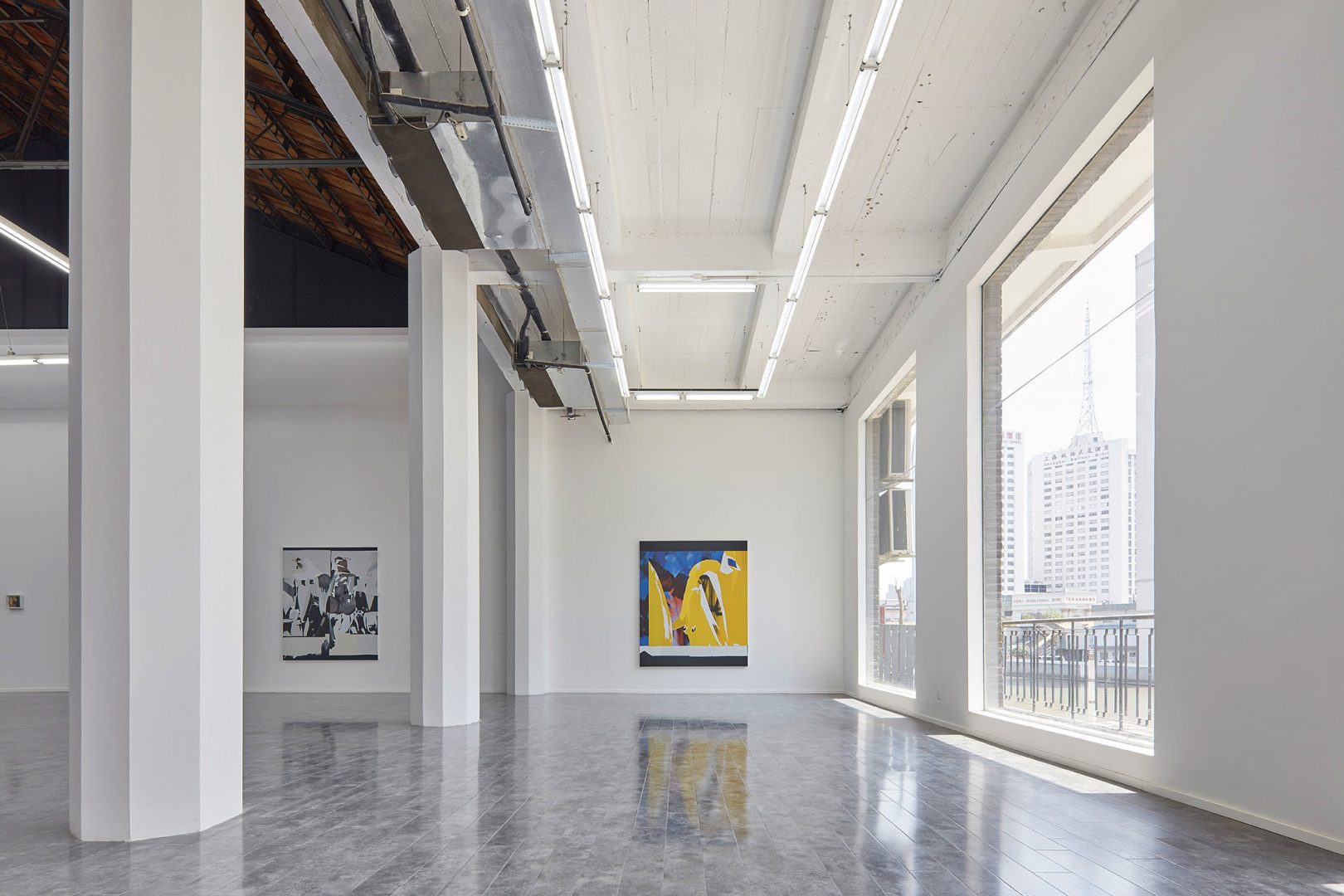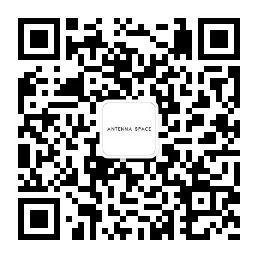2017.06.03 – 2017.07.09
Han Bing:Neighborhood Institutions – Paths, Nodes and Enclaves
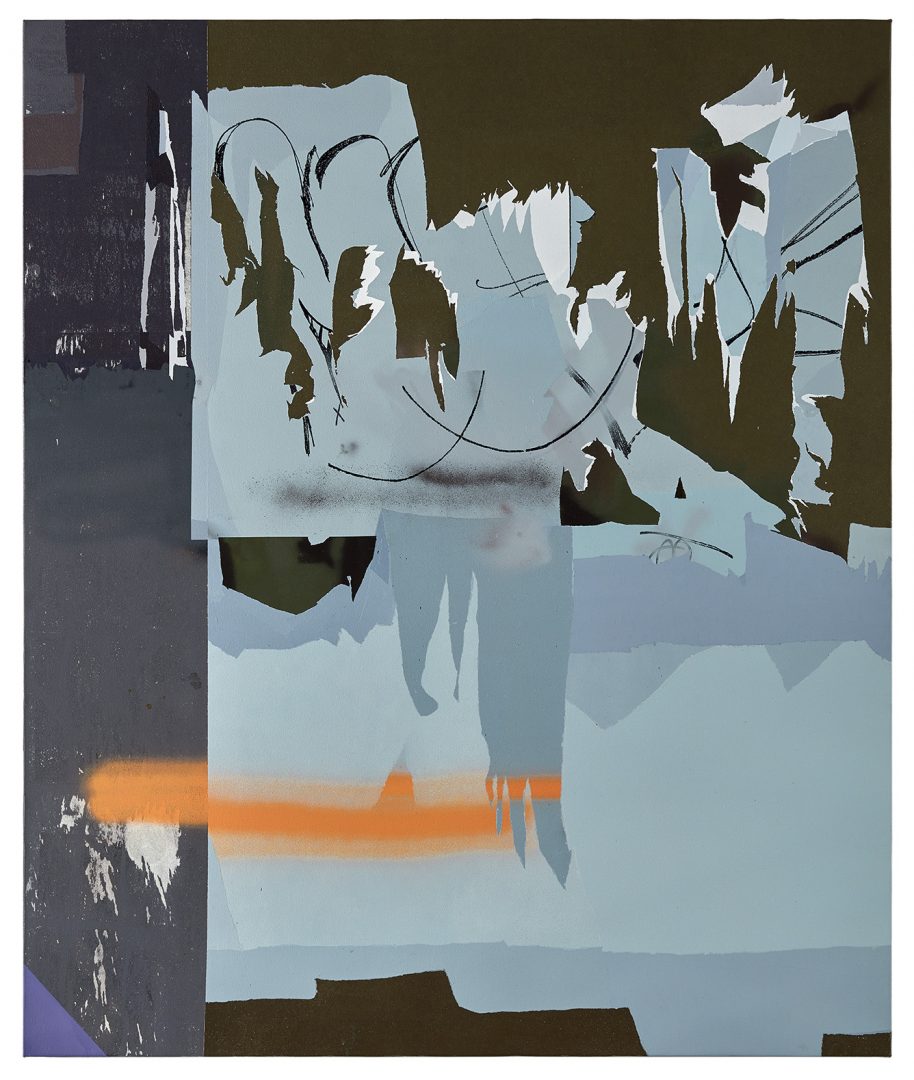
Antenna Space is proud to present Neighborhood Institutions – Paths, Nodes and Enclaves, a solo exhibition by artist HAN Bing. In the way she speaks about her experience as an artist always on the move, working, over the last few years, between short-lease studios in Brooklyn, Los Angeles, and Shanghai, Han seems to locate herself within the network of temporary spaces and structures she finds everywhere. There is a quotation of self-identification here, and a suggestion that perhaps Han Bing’s willingness to dissolve the city into multifarious personified surfaces is a gesture not of a lacking sense of self but rather an affirmation of confidence.
In Han Bing’s new paintings, fragments of urban space appear as portraits. Torn posters and sprayed tags and coils of chain-link fence coalesce into veritable personalities—not faces, nothing recognizable, but the sense is there nonetheless. There’s a whole genre of art and film in which the personification of architecture allows personal dramas to play out in the space of the city: think of everything from John Smith’s The Black Tower (1987).
It’s a manifestation of an unstable sense of self, in ways, and an ink blot test for the architecture of the selfie. Consider a painting like Overlap (2017), in which an undulating blue field is interrupted by several vertical barriers that break the composition into repeating sections defined by the anonymous gestures of intervention on the street: written graffiti, here in yellow and orange, always covered and altered so it remains just illegible; wheat pasted posters put up randomly and torn down violently, but with all graphic or textual content obscured, here leaving large swaths of grayscale biting into the picture plane; and temporary architecture, in the form of rolling doors, construction barriers, and curbs, here including two broad horizontal swaths of black and gray along the bottom that emphasize the compositional nature of the riotous forms above them.
Han Bing uses her camera to capture fragments of the city like notes or sketches, which then return to the studio and are printed and recomposed. This viewing experience dovetails with the ephemeral nature of the accidental assemblages that Han finds herself drawn to in the first place, which she refers to as temporary architecture. It’s a way to tie herself to a place and time. There is, naturally, a potential conflict between these modes of expression, in that painterly composition and smartphone photography work, respectively, outwards from the details of manual gestures and inward from the totality of the instant.
Pieces like Mott Street (2017), in which competing picture planes collide massively and dramatically, prove painting’s value in maintaining multiple states of being simultaneously in a way that photography and objects, as they exist now, cannot: a whorl of torn paper and yellow spray paint marks tornadoes its way across the canvas from upper right to lower left, seemingly picking up and tearing away coverings of unclear gray material to reveal vibrant fields of fiery orange and royal blue, a moment that must have almost existed—a personality on the brink of collapse that is brought into being in order to be captured, explored, and worshipped before it is pushed over the edge.
Discarding the overdetermined symbolic meanings of certain colors and forms, forms within the painting group themselves together into subjects that speak with distinct personalities, in this case revealing the struggle of a site caught between an openness to the new and a harmony with the wider world. It is clear that, though Han is immediately attracted to certain moments on actually existing streets—compositions of chaos and design that might exist in a given state only for a matter of moments, just long enough to snap a picture, before they are altered or destroyed—she is also invested in the act of painting, of taking these painterly moments from nature and encouraging them to resolve themselves into paintings in the fullest sense of the word.
These paintings, which tend towards a set of dimensions best explained as approaching 1.8 meters on one edge or the other, echo this conceptual structure by just exceeding the scale of the human body. They begin life as tiny smartphone photographs that, through the bodily mediation of the artist, are returned to life-size, or something like that. This series of parallel experiments is made clear in a set of minor works, smaller paintings that act as testing grounds for new techniques as well as, ultimately, convenient showcases for these gestures, where they cannot be buried by the overall composition of a louder piece. In this sense, they function as legends for the overall map, pointing to the meanings of certain significant individual things happening in the larger works.
Installation Views
Artworks
-
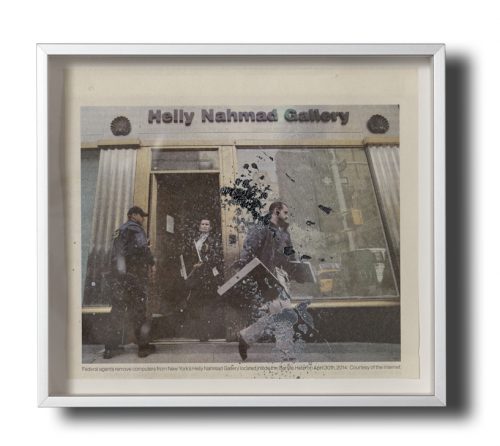
Han Bing, Process Ⅰ, 2017
Han BingAcrylic, Newspaper, Aluminum
22 × 19.5 cm作品信息Information -
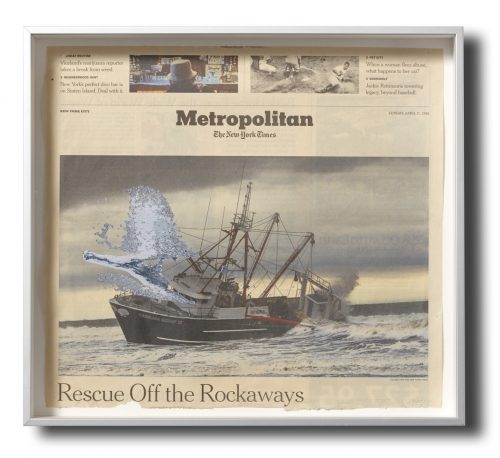
Han Bing, Process Ⅲ, 2016
Han bingAcrylic, Newspaper, Aluminum
33 × 30 cm作品信息Information -
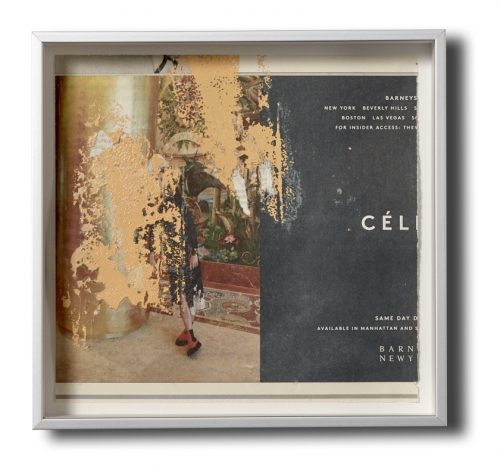
Han Bing, Process Ⅱ, 2017
Han BingAcrylic, Newspaper, Aluminum
23 × 22 cm作品信息Information -
5-Acrylic-and-Nylon-on-Wood-40.5×30.5cm-2017-500x654.jpg)
Han Bing, Untitled (camo) 5, 2017
Han BingAcrylic and Nylon on Wood
40.5 × 30.5 cm作品信息Information -
4-Acrylic-and-Nylon-on-Wood-40.5×30.5cm-2017-500x652.jpg)
Han Bing, Untitled (camo) 4, 2017
Han BingAcrylic and Nylon on Wood
40.5 × 30.5 cm作品信息Information -
3-Acrylic-and-Nylon-on-Wood-40.5×30.5cm-2017-500x660.jpg)
Han Bing, Untitled (camo) 3, 2017
Han BingAcrylic and nylon on wood
40.5 × 30.5 cm
2017作品信息Information -
2-Acrylic-and-Nylon-on-Wood-40.5×30.5cm-2016-500x659.jpg)
Han Bing, Untitled (camo) 2, 2016
Han BingAcrylic and Nylon on Wood
40.5 × 30.5 cm作品信息Information -
1-Acrylic-and-Nylon-on-Wood-40.5×30.5cm-2016-500x655.jpg)
Han Bing, Untitled (camo) 1, 2016
Han BingAcrylic and Nylon on Wood
40.5 × 30.5 cm作品信息Information -
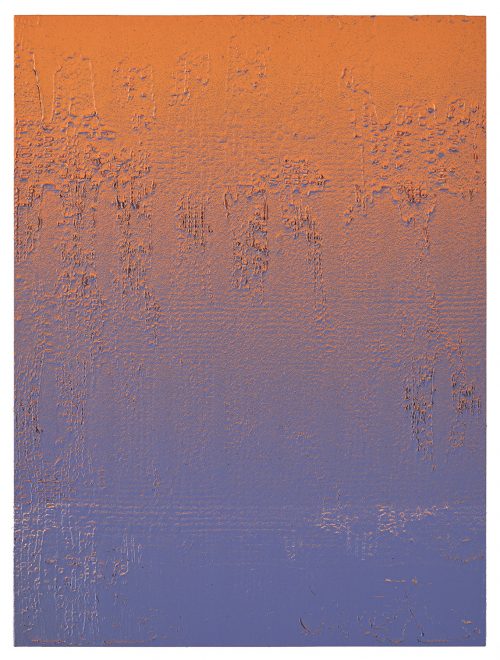
Han Bing, Ruins, 2016
Han BingAcrylic on Wood
30.5 × 23 cm作品信息Information -
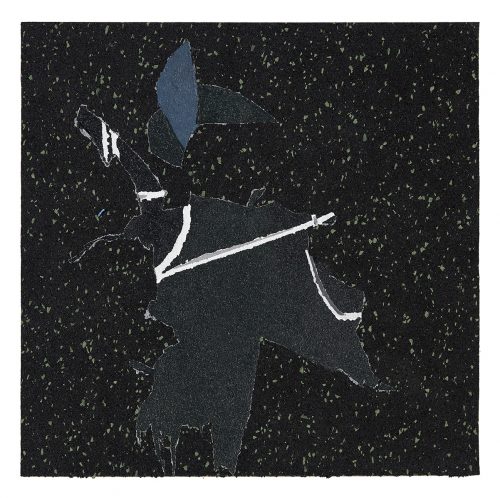
Han Bing, Canal Rubber, 2016
Han BingAcrylic and Rubber on Wood
30.5 × 30.5 cm作品信息Information -
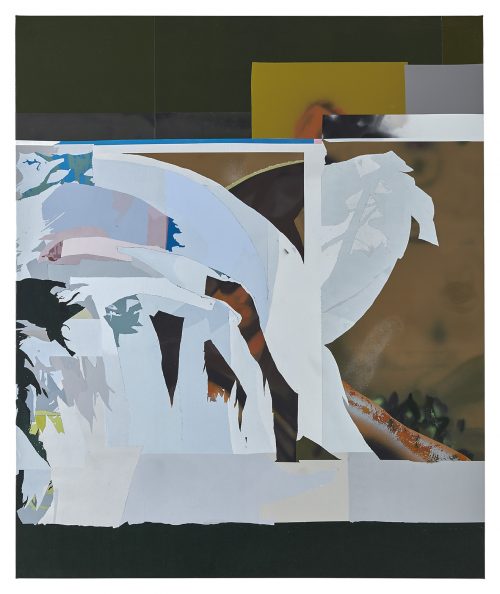
Han Bing, BROOME Ⅲ, 2016
Han BingAcrylic on Linen
201 × 172 cm作品信息Information -
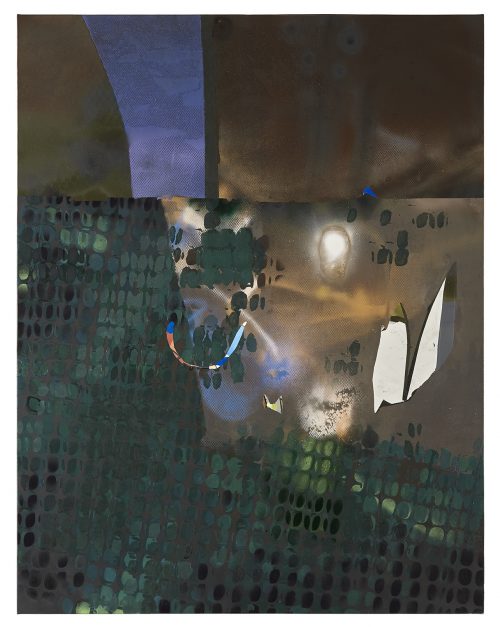
Han Bing, SOHO, 2016
Han BingAcrylic on Linen
173 × 135 cm作品信息Information -
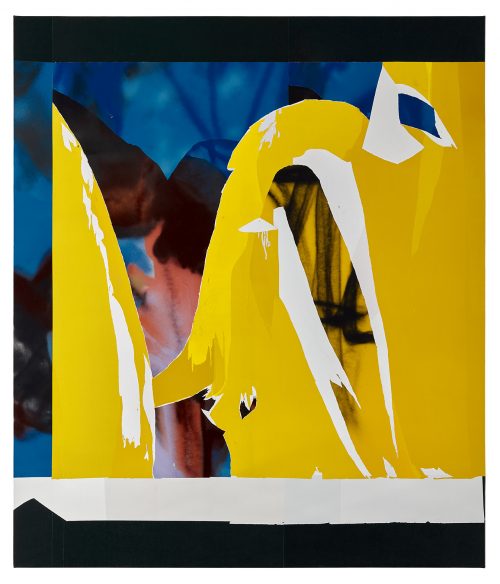
Han Bing, East Wave, 2017
Han BingAcrylic on Linen
201 × 172 cm作品信息Information -
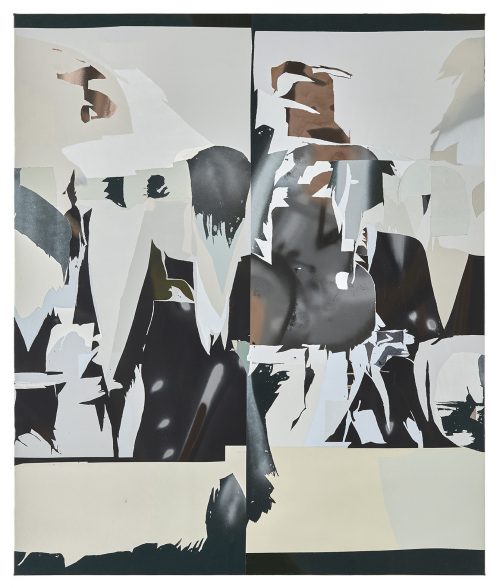
Han Bing, Double Screen, 2016
Han BingAcrylic on Canvas
182 × 152 cm作品信息Information -
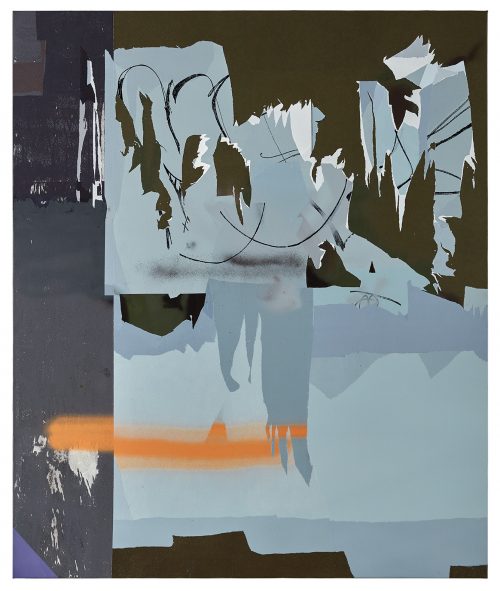
Han Bing, DTLA, 2016
Han BingAcrylic on Canvas
182 × 152 cm作品信息Information -
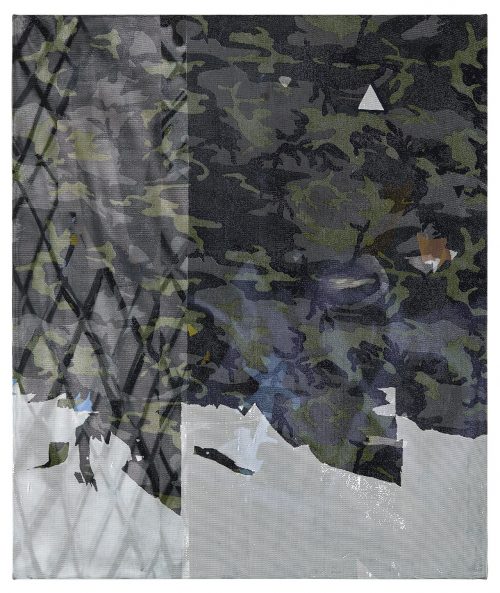
Han Bing, Camo Ⅱ, 2016
Han BingAcrylic and Nylon on Linen
166 × 140 cm作品信息Information -
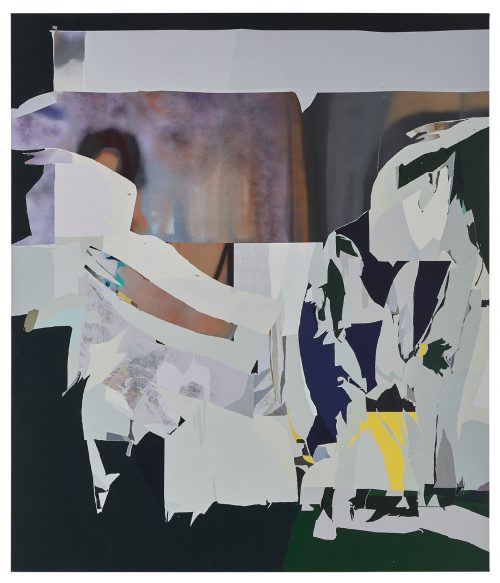
Han Bing, LES Nights, 2017
Han BingAcrylic on linen
201 × 172 cm作品信息Information -
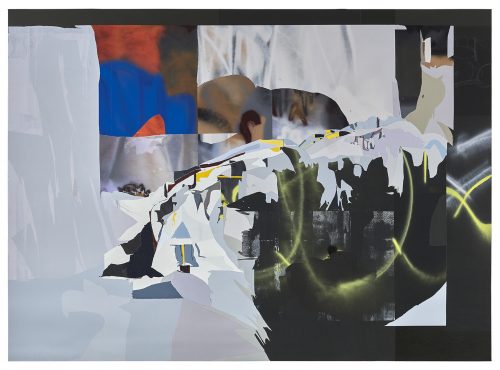
Han Bing, Mott Street, 2017
Han BingAcrylic on Linen
255 × 185 cm作品信息Information -
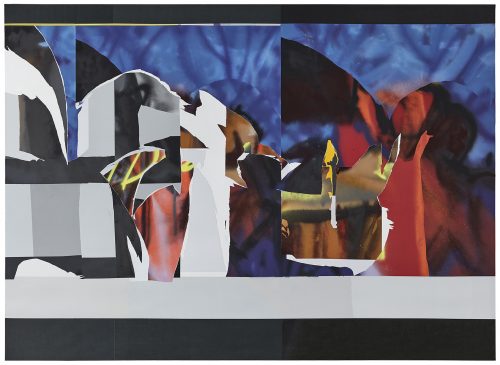
Han Bing, Overlap, 2017
Han BingAcrylic on Linen
255 × 185 cm作品信息Information
